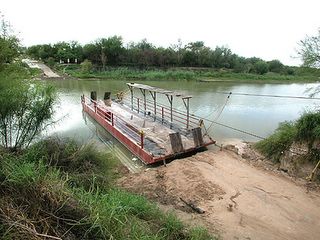The Generalist....
It wasn't to long ago that a multitiude of agencies came crashing together, with quite abit less than a plan. In one area, a few agencies came together and the goal was to produce one face at the border, a concept that I support. In the confusion, the myth of a super officer able to handle any and all situations was conceived, .... a generalist.
Spending many years in the private sector taught me quite a bit, including this gem. If you put your people in the area in which they are experts and you cover all areas with these experts, you are damn likely to produce a fine product or service. Your people will be happier, your customers will be happier, and in the case of the merged agencies, the bad guys will suffer. Every large successful organization relies on experts, that is what makes them successful.
The intent of the merger was not to produce a generalist. It was to put one face at the border, integrating the experts in the various agencies under one management structure that could be held accountable. In doing so, it would provide the nation with a superior level of performance in the areas of national security, economic facilitation, and the flow of people in and out of the country.
I have high hopes that this will be the end result of a good idea that has yet to take shape.
Spending many years in the private sector taught me quite a bit, including this gem. If you put your people in the area in which they are experts and you cover all areas with these experts, you are damn likely to produce a fine product or service. Your people will be happier, your customers will be happier, and in the case of the merged agencies, the bad guys will suffer. Every large successful organization relies on experts, that is what makes them successful.
The intent of the merger was not to produce a generalist. It was to put one face at the border, integrating the experts in the various agencies under one management structure that could be held accountable. In doing so, it would provide the nation with a superior level of performance in the areas of national security, economic facilitation, and the flow of people in and out of the country.
I have high hopes that this will be the end result of a good idea that has yet to take shape.


